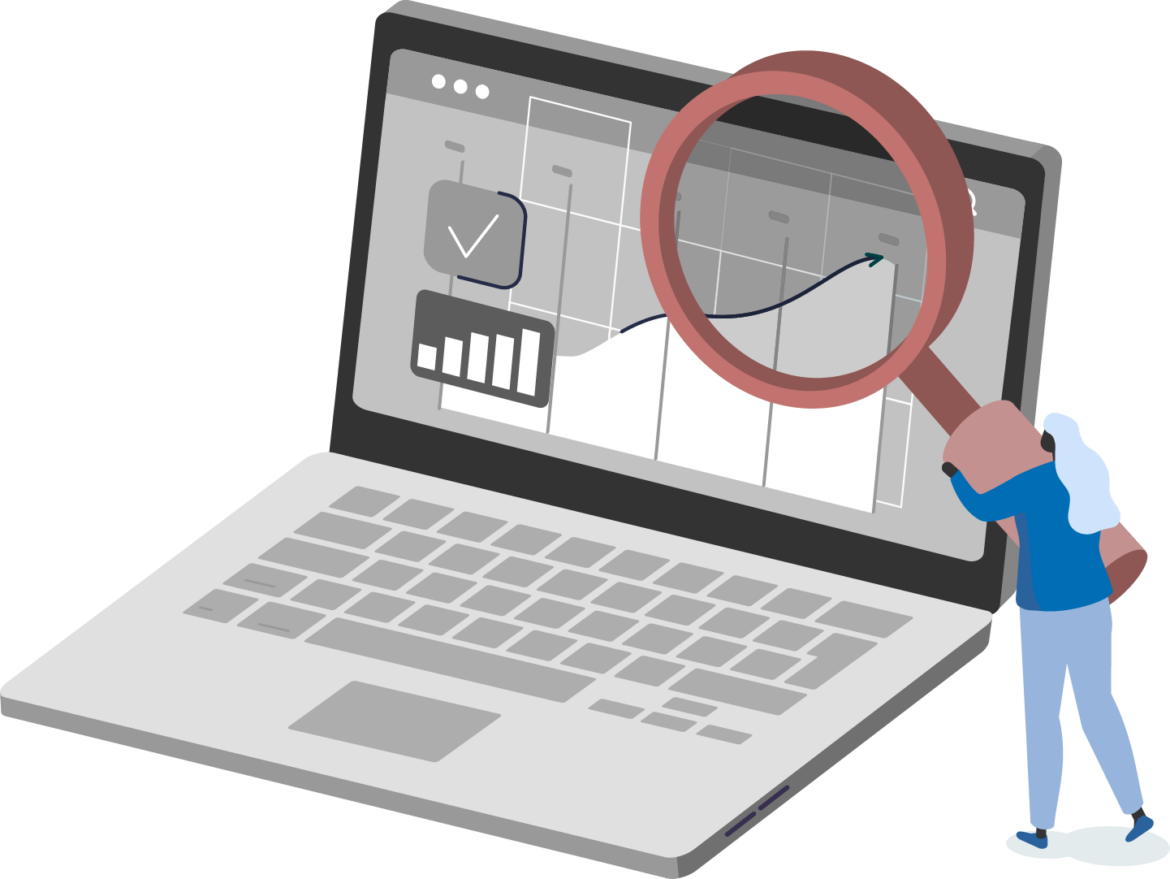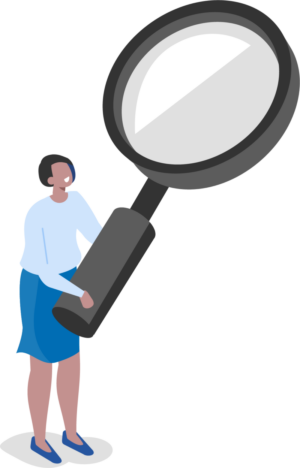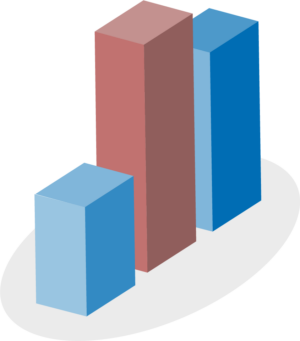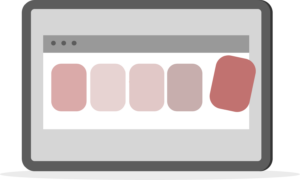Defining authorship in your research paper
Authorship gives credit and implies accountability for published work, so there are academic, social and financial implications.
It is very important to make sure people who have contributed to a paper, are given credit as authors. And also that people who are recognized as authors, understand their responsibility and accountability for what is being published.
There are a couple of types of authorship to be aware of.
- Co-author
Any person who has made a significant contribution to a journal article. They also share responsibility and accountability for the results of the published research.
- Corresponding author
If more than one author writes an article, you’ll choose one person to be the corresponding author. This person will handle all correspondence about the article and sign the publishing agreement on behalf of all the authors. They are responsible for ensuring that all the authors’ contact details are correct, and agree on the order that their names will appear in the article. The authors also will need to make sure that affiliations are correct and are the same in both the manuscript and the submission system, as explained in more detail below.
If you are a named co-author, this means that you:
- Made a significant contribution to the work reported. That could be in the conception, study design, execution, acquisition of data, analysis and interpretation, or in all these areas; AND
- Have drafted or written, substantially revised or critically reviewed the article; AND
- Have agreed on the journal to which the article will be submitted; AND
- Reviewed and agreed on all versions of the article before submission, during revision, the final version accepted for publication, and any significant changes introduced at the proofing stage; AND
- Agree to take responsibility and be accountable for the contents of the article. Share responsibility to resolve any questions raised about the accuracy or integrity of the published work.

Affiliations: get it right
Your affiliation in the manuscript and when entered into the submission system should be the institution where you conducted the research. You should also include details of any funding received from that institution.
If you have changed affiliation since completing the research, your new affiliation can be acknowledged in a note. We can’t normally make changes to affiliation after the journal accepts your article, and we are unable to change affiliation to achieve eligibility for an open access agreement.
Author contributions
Promoting transparency in author contributions makes sure that appropriate credit for specific aspects of published work can be clearly attributed to each author. To enable authors to state the individual contributions of each listed author on the article, The Primary Education Journal has adopted Contributor Roles Taxonomy (CRediT), which allows individual contributions to be listed according to specific role types.
Changes to authorship
- Authorship changes post-submission should only be made in exceptional circumstances, and any requests for authors to be removed or added must be in line with our authorship criteria.
- If you need to make an authorship change, you will need to contact the journal editor. You will be asked to complete our Authorship Change request form; all authors (including those you are adding or removing) must sign this form. This will be reviewed by the editor.
- Please note any authorship change is at the editor’s discretion; they have the right to refuse any authorship change they do not believe conforms with our authorship policies.
- If you wish to make a change to the corresponding author before the article is published (for example, if a co-author becomes the corresponding author), you will need to contact the journal editorial. You will need to confirm to them that both authors have agreed the change.
- Requested changes to the co-authors or corresponding authors following publication of the article may be considered, in line with the authorship guidelines issued by COPE, the Committee on Publication Ethics. Please see our corrections policy for more details. Any requests for changes must be made by submitting the completed Authorship Change Request form.

Important: agree on your corresponding author and the order of co-authors, and check all affiliations and contact details before submitting.
The Primary Education Journal Editorial Policies on Authorship
The following instructions are part of our Editorial Policies.
AI-based tools and technologies for content generation
If you have used AI tools (e.g. large language models, generative AI, and chatbots) in your research or the writing of your article, please note the following authorship principles:
You must not list AI tools as a co-author of your article. This is because authorship requires taking accountability for content, consenting to publication via a publishing agreement, and giving contractual assurances about the integrity of the work. These are uniquely human responsibilities that cannot be undertaken by AI tools.
You must clearly acknowledge within your article use of Generative AI tools. Please add a statement in the Methods and Acknowledgments section which includes:
- The full name of the tool used (with version number).
- How it was used.
- The reason for use.
When you submit your work to journal you must be confirm that you have disclosed within your manuscript any use of AI tools. This level of transparency makes sure that editors and reviewers are aware that AI tools have been used, so that they can assess whether they have been used appropriately and responsibly.
Please see the The Primary Education Journal AI Policy for more details.
Corresponding author
Co-authors must agree on who will take on the role of corresponding author. It is then the responsibility of the corresponding author to reach consensus with all co-authors regarding all aspects of the article, prior to submission. This includes the authorship list and order, and list of correct affiliations.
The corresponding author is also responsible for liaising with co-authors regarding any editorial queries. And, they act on behalf of all co-authors in any communication about the article throughout: submission, peer review, production, and after publication. The corresponding author signs the publishing agreement on behalf of all the listed authors.

Anonymous authorship and researchers at risk
Where there is a credible risk of serious harm or threat to their life or liberty, as a result of their research or findings, researchers should contact the journal Editor to discuss what options for publication may be available to minimise risk to the researcher.
Please note that the purpose of naming authors on scholarly publications is to ensure that the appropriate individuals receive recognition, and are accountable, for the published work. Therefore, anonymous publication may only be considered in exceptional circumstances. Requests will be evaluated on their own merit by the journal Editor, and an editorial note or footnote to accompany the publication may be warranted. The editor has full and sole discretion as to whether a request to publish anonymously will be granted and do not provide any guarantee that requests will be granted.
If the editor grants a request to publish anonymously, they cannot and do not make any guarantees with respect to the author’s total anonymity and the author acknowledges that they proceed with publication of the article at their own risk. The editor will also requires the author to enter into any requisite publishing agreements and copyright documentation under the author’s legal name.
For further information on researchers at risk we recommend the following organisations:
Should you have any further questions regarding this policy, please contact [email protected].
Changes in authorship
Any changes in authorship prior to or after publication must be agreed upon by all authors – including those authors being added or removed. It is the responsibility of the corresponding author to obtain confirmation from all co-authors and to provide a completed Authorship Change Request form to the editor.
If a change in authorship is necessary after publication, this will be amended via a post-publication notice. Any changes in authorship must comply with our criteria for authorship. And requests for significant changes to the authorship list, after the article has been accepted, may be rejected if clear reasons and evidence of author contributions cannot be provided.
Assistance from scientific, medical, technical writers or translators
Contributions made by professional scientific, medical or technical writers, translators or anyone who has assisted with the manuscript content, must be acknowledged. Their source of funding must also be declared.
They should be included in an ‘Acknowledgments’ section with an explanation of their role, or they should be included in the author list if appropriate.
Authors are advised to consult the joint position statement from American Medical Writers Association (AMWA), European Medical Writers Association (EMWA), and International Society of Medical Publication Professionals (ISMPP).
Assistance with experiments and data analysis
Any significant contribution to the research reported, should be appropriately credited according to our authorship criteria.
If any parts of the research were outsourced to professional laboratories or to data analysts, this should be clearly stated within the manuscript, alongside an explanation of their role. Or, they should be included in the author list if appropriate.
Authors are responsible for retaining all of the original data related to their work, and should be prepared to share it with the journal.

Acknowledgments
Any individuals who have contributed to the article (for example, technical assistance, formatting-related writing assistance, translators, scholarly discussions which significantly contributed to developing the article), but who do not meet the criteria for authorship, should be listed by name and affiliation in an ‘Acknowledgments’ section.
It is the responsibility of the authors to notify and obtain permission from those they wish to identify in this section. The process of obtaining permission should include sharing the article, so that those being identified can verify the context in which their contribution is being acknowledged.
Any assistance from AI tools for content generation (e.g. large language models) and other similar types of technical tools which generate article content, must be clearly acknowledged within the article. It is the responsibility of authors to ensure the validity, originality and integrity of their article content. Authors are expected to use these types of tools responsibly and in accordance with our editorial policies on authorship and principles of publishing ethics.
Biographical note
Please supply a short biographical note for each author. This could be adapted from your departmental website or academic networking profile and should be relatively brief (e.g. no more than 200 words).
Author name changes on published articles
There are many reasons why an author may change their name in the course of their career. And they may wish to update their published articles to reflect this change, without publicly announcing this through a correction notice. The Primary Education Journal will update journal articles where an author makes a request for their own name change, full or partial, without the requirement for an accompanying correction notice. Any pronouns in accompanying author bios and declaration statements will also be updated as part of the name change, if required.
When an author requests a name change, The Primary Education Journal will:
- Change the metadata associated with the article on our platform.
- Update the HTML and PDF version of the article.
- Resupply the new metadata and article content to any abstracting and indexing services that have agreements with the journal. Note: such services may have their own bibliographic policies regarding author name changes. The Primary Education Journal cannot be held responsible for controlling updates to articles on third party sites and services once an article has been disseminated.
If an author wishes for a correction notice to be published alongside their name change, The Primary Education Journal will accommodate this on request. But, it is not required for an author name change to be made.
To request a name change, please contact journal’s editor.
The Primary Education Journal consider it a breach of publication ethics to request a name change for an individual without their explicit consent.

